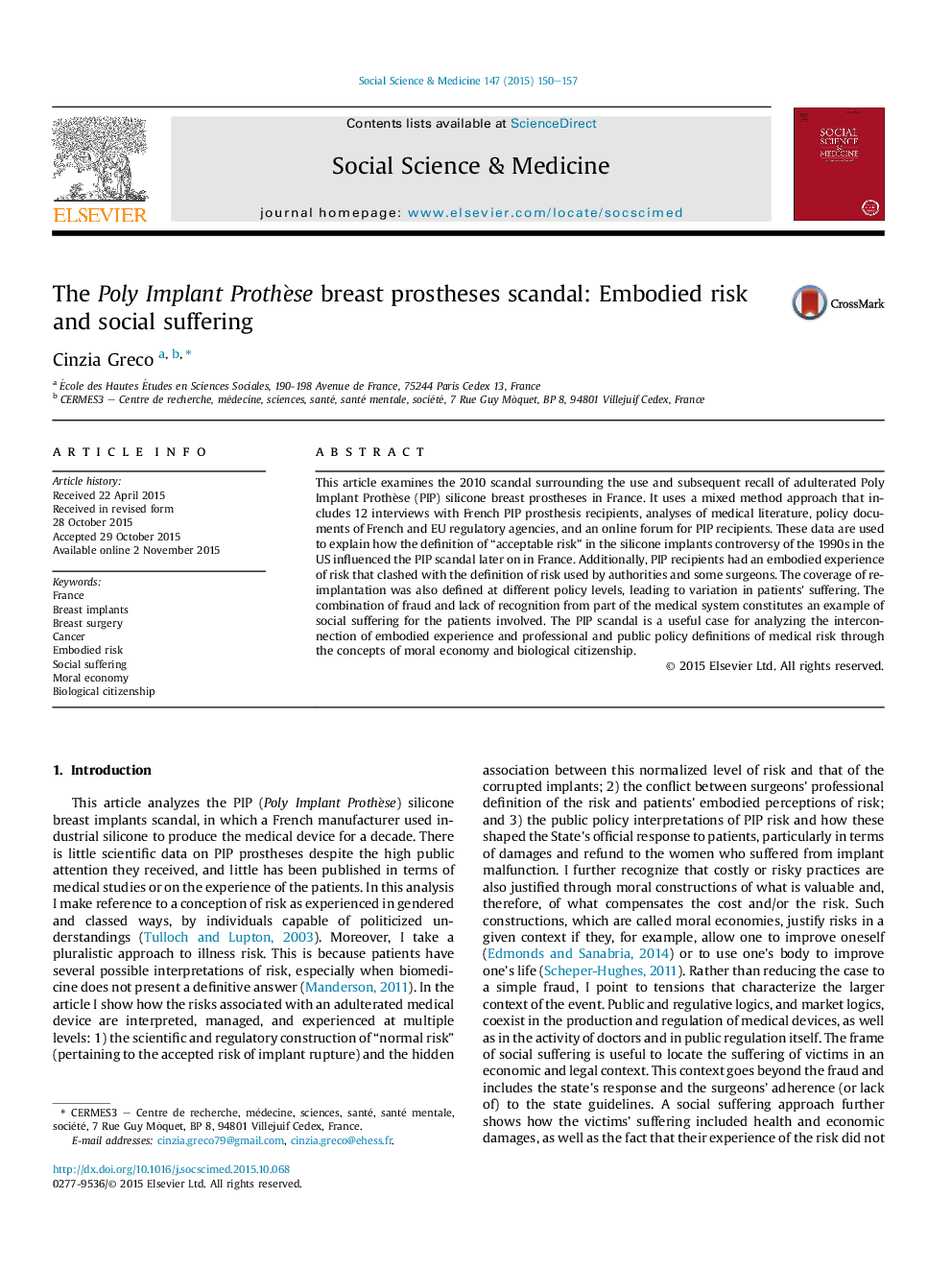| Article ID | Journal | Published Year | Pages | File Type |
|---|---|---|---|---|
| 7331222 | Social Science & Medicine | 2015 | 8 Pages |
Abstract
This article examines the 2010 scandal surrounding the use and subsequent recall of adulterated Poly Implant Prothèse (PIP) silicone breast prostheses in France. It uses a mixed method approach that includes 12 interviews with French PIP prosthesis recipients, analyses of medical literature, policy documents of French and EU regulatory agencies, and an online forum for PIP recipients. These data are used to explain how the definition of “acceptable risk” in the silicone implants controversy of the 1990s in the US influenced the PIP scandal later on in France. Additionally, PIP recipients had an embodied experience of risk that clashed with the definition of risk used by authorities and some surgeons. The coverage of re-implantation was also defined at different policy levels, leading to variation in patients' suffering. The combination of fraud and lack of recognition from part of the medical system constitutes an example of social suffering for the patients involved. The PIP scandal is a useful case for analyzing the interconnection of embodied experience and professional and public policy definitions of medical risk through the concepts of moral economy and biological citizenship.
Related Topics
Health Sciences
Medicine and Dentistry
Public Health and Health Policy
Authors
Cinzia Greco,
